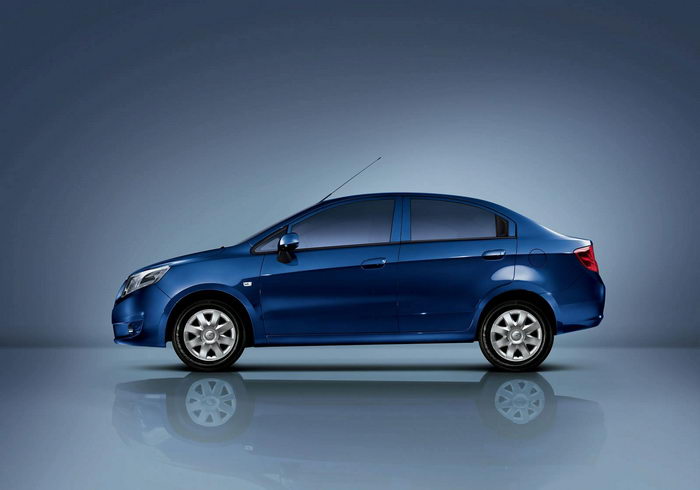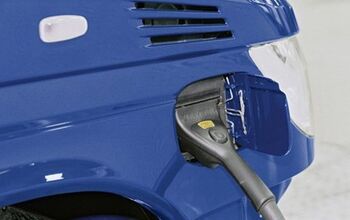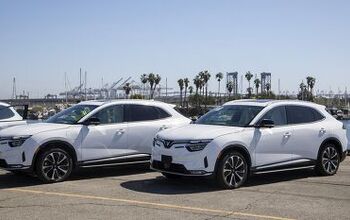Who Exiled The Electric Car?
The recently-debuted Chevrolet Volt ads are built around the same basic assumption that drove the design of the Volt’s extended-range electric (EREV) drivetrain: Americans will not tolerate running out of vehicle range. So severe will be America’s Range Anxiety®, GM is guessing, that its electric vehicle (EV) consumers would be happy to lose some electric range and pay a significant price premium compared to the pure-electric competition in order to fill up on gas when they forget to plug in. But while we wait for this psychological insight to prove true across the broader market, recent news seems to show that GM has forgotten about another beloved American freedom: the freedom of choice. For example, the choice to buy a GM-made “pure” EV. To find that kind of freedom you have to go to China…
GM and its major Chinese partner, SAIC, recently signed a memo of understanding allowing the two firms to
share technology and experience more widely to support the joint development of electric cars and components.
The first fruits of that relationship is an electric version of the “the first passenger car created in China by a Sino-foreign joint venture,” the Chevy Sail (shown above). Reuters [via ABC] reports that the Sail EV is already under development, and prototypes will start testing by year’s end. And no wonder. The Chinese government is pouring tens of billions into greentech and EV incentives, with the particular goal of increasing technology-sharing between foreign firms and Chinese partners. Mystery solved. What’s still puzzling is that China will get Volts as well as the Sail EV, giving (theoretical) Chinese EV intenders the choice of a Range Anxiety®-inducing “pure” EV and a brilliant but expensive (even by American standards) EREV. Too bad the search for a Chinese plug-in buyer is still ongoing.
And China isn’t the only faraway land that GM has exiled pure-EV development to. Electrified versions of the Chevrolet Cruze are being tested in Korea by GM-Daewoo, and GM India reportedly took over development of a Chevy Spark-based EV when Mahindra bought out Reva. But of the three Asian EV projects, the Korean Cruze EV seems the only possible US-bound model, and its similarity to the Volt (drivetrain aside) would complicate branding and pricing decisions. And it would make spreading Range Anxiety® considerably more difficult. The Volt’s complete reliance on a specific interpretation of human nature (more specifically, American nature), means GM almost has to keep the pure EVs out of the American market until it has completely given up on making the Volt a mass-market hit.
To preserve our freedom (to use gasoline), GM hasto destroy our freedom (to choose a pure EV). Or force their buyers into the waiting arms of Nissan, Ford, Coda, et al.
More by Edward Niedermeyer
Latest Car Reviews
Read moreLatest Product Reviews
Read moreRecent Comments
- MaintenanceCosts I wish more vehicles in our market would be at or under 70" wide. Narrowness makes everything easier in the city.
- El scotto They should be supping with a very, very long spoon.
- El scotto [list=1][*]Please make an EV that's not butt-ugly. Not Jaguar gorgeous but Buick handsome will do.[/*][*] For all the golf cart dudes: A Tesla S in Plaid mode will be the fastest ride you'll ever take.[/*][*]We have actual EV owners posting on here. Just calmly stated facts and real world experience. This always seems to bring out those who would argue math.[/*][/list=1]For some people an EV will never do, too far out in the country, taking trips where an EV will need recharged, etc. If you own a home and can charge overnight an EV makes perfect sense. You're refueling while you're sleeping.My condo association is allowing owners to install chargers. You have to pay all of the owners of the parking spaces the new electric service will cross. Suggested fee is 100$ and the one getting a charger pays all the legal and filing fees. I held out for a bottle of 30 year old single malt.Perhaps high end apartments will feature reserved parking spaces with chargers in the future. Until then non home owners are relying on public charge and one of my neighbors is in IT and he charges at work. It's call a perk.I don't see company owned delivery vehicles that are EV's. The USPS and the smiley boxes should be the 1st to do this. Nor are any of our mega car dealerships doing this and but of course advertising this fact.I think a great many of the EV haters haven't came to the self-actualization that no one really cares what you drive. I can respect and appreciate what you drive but if I was pushed to answer, no I really don't care what you drive. Before everyone goes into umbrage over my last sentence, I still like cars. Especially yours.I have heated tiles in my bathroom and my kitchen. The two places you're most likely to be barefoot. An EV may fall into to the one less thing to mess with for many people.Macallan for those who were wondering.
- EBFlex The way things look in the next 5-10 years no. There are no breakthroughs in battery technology coming, the charging infrastructure is essentially nonexistent, and the price of entry is still way too high.As soon as an EV can meet the bar set by ICE in range, refueling times, and price it will take off.
- Jalop1991 Way to bury the lead. "Toyota to offer two EVs in the states"!


































Comments
Join the conversation
China and all the other dragons in that part of the world have a major problem that EV's solve over any other drive system ... pollution. Their cities are a cesspool of smog and the effluvia of a million cars, busses and trucks. Moving that onto the grid would lessen the impact while allowing the populace to upgrade beyond a bicycle. The EV for those markets will be strong as long as the distances are kept down.
The image brought on by the name "Sail" makes my Range Anxiety flare up.